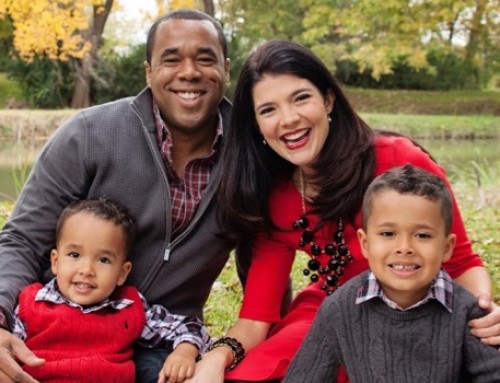This is a wonderful and empowering “MSN Living” article in response to the kidnappings of the 3 young women in Cleveland, Ohio.
“How to talk to your kids about kidnapping”
The Cleveland kidnapping leaves many parents wondering how to talk to their kids about predators.
By Charyn Pfeuffer – MSN Living Editor
Each year, an estimated 800,000 children under the age of 18 are reported missing in the United States. That means roughly 2,191 times per day, parents or primary caregivers felt the disappearance was serious enough to contact law enforcement. That’s a lot of panicked phone calls.
Instead of thinking a kidnapping could never happen to your family, start a conversation with your children about how to stay safe if they are faced with a predator.
“Not Cleveland specific, but most valuable for me as a parent is to teach my kids…to cultivate the wisdom and courage to be sensitive to trust their gut instincts and act on them even if it may sometimes make you feel mean or stupid,” says Terry Wood-Abeyta, mom of two, in California. “Your gut is usually right.”
Here are some talking points to help you get started:
Teach kids to spot predators
Teach children to spot potentially dangerous actions and people. A child predator is not always obvious and can be someone a child knows. Even someone quite charming.
According to the United States Department of Justice, Office of Juvenile Justice Delinquency Prevention, 49 percent of juvenile kidnappings are perpetrated by a relative or family member, compared to 24 percent by a stranger.
Create a family safety plan
Create an age-appropriate safety plan with your kids. It doesn’t need to be complicated. A few basic strategies like using a buddy system or knowing their home phone number and how to call 911 can help protect kids from a dangerous situation.
The National Center for Missing & Exploited Children offers free safety resourcesfor families and communities to help talk to children about safety and abduction prevention.
Teach kids to self-protect
Experts say that in a kidnapping situation, fighting back is important. For kidnappings that result in death, the first three hours are the most critical when trying to locate a missing child. A 2006 study indicated that 76.2 percent of abducted children are killed within this short timeframe.
Marylene Cloitre of the New York University Child Study Center, told ABC’s “Good Morning America” that kids in an abduction situation should kick, scream and shout ,“Who are you? I don’t know who you are. You’re hurting me. Stop it.” They should try to call attention to the state they’re in.
There are some smart things kids can do to fight back, including jamming something into the car’s ignition or if they’re in the trunk, kick out the tail lights.
Make it easy for kids to be identified
Have your child fingerprinted at your local police station. Not only is it free, it can help law enforcement officials respond more quickly if your child is abducted.
Another clever and easy idea is to keep a current photo of your kid on your cell phone.
“I have a current picture of them on my cell phone. So no matter where I was, if I couldn’t find them in one second, I could identify them and say this is my child,” Stephanie Kaste, mother of three, told “Good Morning America.”
Though all of our teaching and training won’t guarantee that someone won’t target our kids, we can help them see the warning signs and know what to do if they, or someone they know, faces something like this. After reading this article, I immediately put some of these ideas into action and began to practice them with my kids. On the way to school, we’ve been reviewing my phone number and how to type it into a phone. We’ve also been reviewing my husband and I’s REAL names, not just “Mommy” and “Daddy”. Now they will be able to tell a store cashier who their mommy and daddy are, helping them get back to me quickly. I’m looking forward to implementing more of these tools into their “self-worth toolbox”. I don’t know about you, but articles and information like this make me feel empowered as a parent.
Hoping you feel empowered too,
~Lisa







Leave A Comment